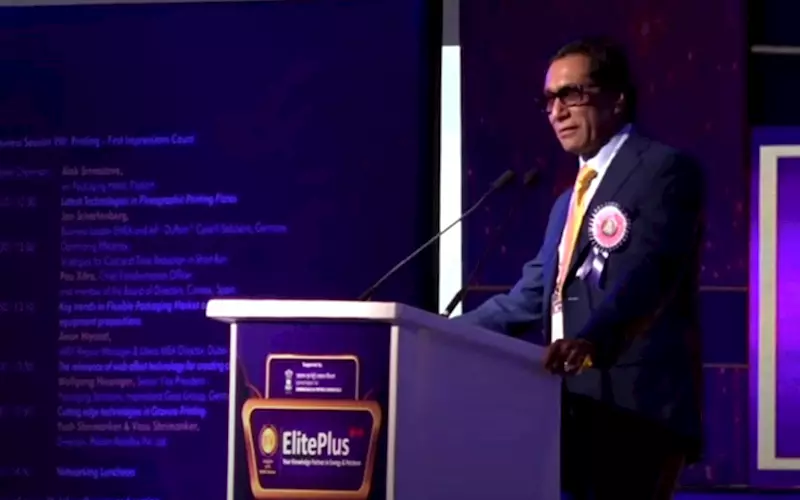Must leverage AI, enzyme-based technology for sustainability: Ashok Chaturvedi
At a keynote address at the 10th Speciality Films & Flexible Packaging Global Summit 2023, Ashok Chaturvedi, founder, chairman and managing director, UFlex Group, highlighted how technologies like artificial intelligence, machine learning, and enzymatic processing can accelerate sustainable innovation in flexible packaging.
01 Sep 2023 | By Rahul Kumar
The Elite Global Summit, held at Reliance Jio World Convention Centre in Mumbai, started on 31 August and features discussions on the Indian economic landscape, current trends in the FMCG sector, and the impact on packaging.
In his address, Chaturvedi reflected on the evolution of the plastics industry, stating, “Back in the 1960s, when chemical companies were developing large-scale plastic production facilities, they coined the slogan: If you want to save the planet, use plastic. We truly believe that today, if producers can reach consumers globally, it is possible only because of flexible packaging. Historically, when chemical companies were producing plastic in the 60s, they had to struggle with their selling proposition, and the production size used to be 1500 tonnes per year. Today, the production size has increased to a million tonnes per year. MLP (multi-layer plastic) as opposed to mono-material packaging, coupled with a robust recycling ecosystem and bio-enzyme technology will propel the industry to the next phase of growth.”
He added, “Today, whatever we are producing needs to be recycled. At UFlex, we have made significant investments in industrial and MLP waste recycling facilities across our global locations and very recently, in enzyme-based delamination and recycling technology for aseptic packaging. We should continue to focus on mechanical recycling. Chemical recycling may not be happening today but will happen in the future.”
Chaturvedi reiterated the need to use machinery and AI to collect and sort waste rather than allowing waste workers to do that manually. “That is not the most effective or sustainable way of creating employment for the marginalized waste workers,” he emphasised. “Waste collection and adequate access to post-consumer waste is one of the biggest problems that we face in India. It is critical to recognise that it is not the process of recycling that presents the most significant hurdle in addressing plastic pollution. Rather, it is the efficient and holistic collection and management of plastic waste that emerges as the cornerstone of our battle.”
The event features specialised sessions dedicated to sustainability with panel discussions on the critical issues facing the industry with eminent speakers from the Central Pollution Control Board of India (CPCB), the Ministry of Environment and Forests (MOEF), and the Central Pollution Control Board (CPCB) of the Government of India.











 See All
See All